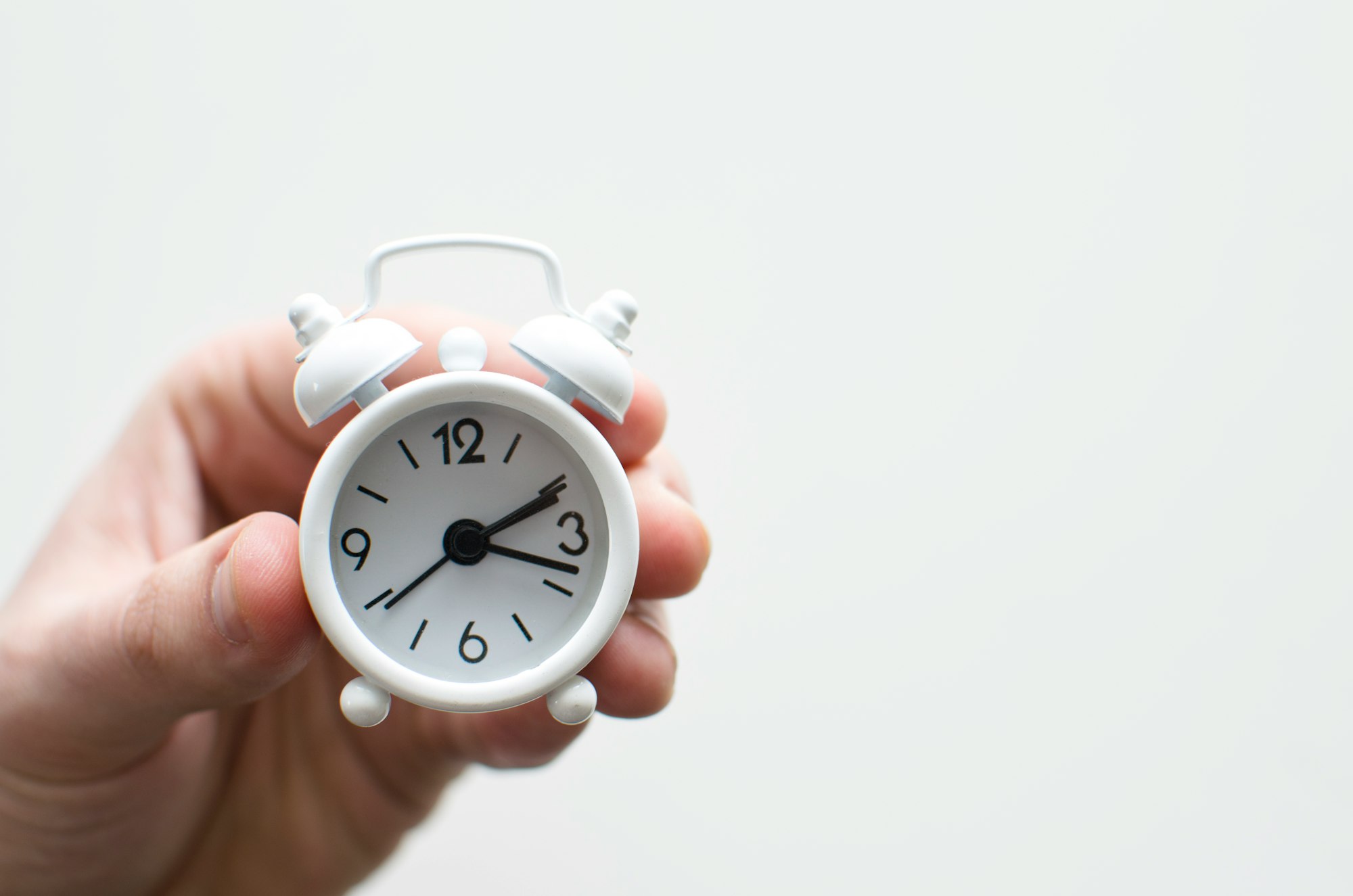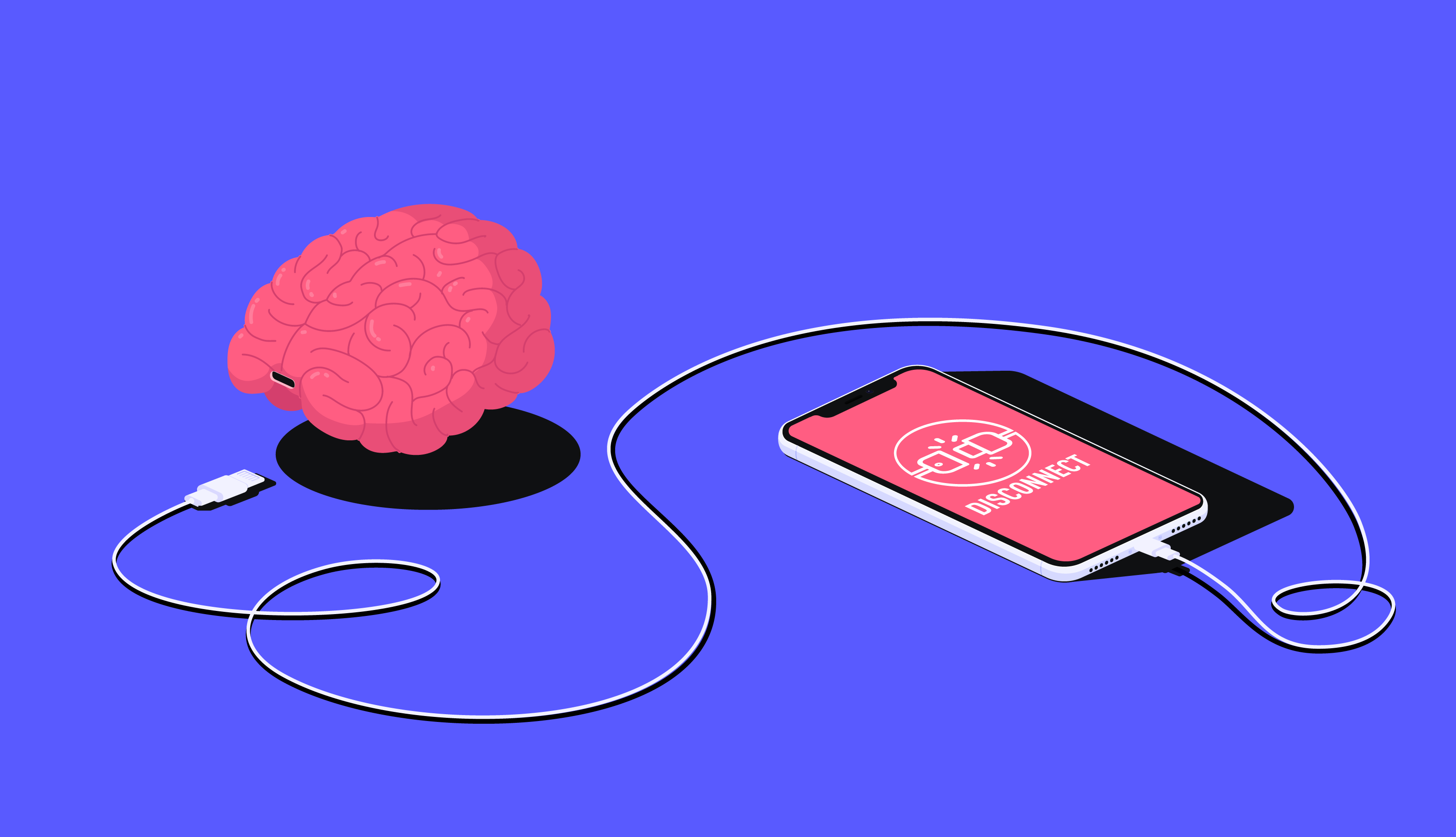Dopamine fasting is the newest trend to emerge from Silicon Valley, but what does it mean, how do you do it and most importantly, does it work?
Table of contents
- What is dopamine and what does it do?
- Dr Cameron Sepah and the dopamine detox
- How long should you dopamine detox for?
- Lost in translation: a fad is born
- The facts behind the fad
- Takeaway
What is dopamine and what does it do?

Dopamine is a neurotransmitter, a chemical messenger produced in the brain, associated with pleasure, reward, and motivation. When you eat a delicious snack, your brain releases dopamine, reinforcing the behaviour and helping to form habits.
How does this work? In short, the activation of dopamine creates a context-dependent memory, essentially telling your brain to remember what triggered the sensation and where you found it.
Over time, the brain’s reward system can learn to release dopamine in anticipation of a pleasurable behaviour. For example, if you always smoke at the pub, your brain begins to release the feel-good chemical in anticipation of a cigarette when you are in that environment, even before you light up.
Bear in mind that dopamine is also responsible for healthy habit formation, including exercise, reading, yoga and any other activity you frequently perform for leisure. People often believe that dopamine is the pleasure molecule, but this isn’t entirely true; it plays more of a role in motivation and reward-based learning.
Continuing, a lack of dopamine can cause a range of health issues. To name an example, dysfunctional dopamine regulation is associated with depression.
This partly explains why one of the condition’s most common symptoms is anhedonia- the inability to feel anticipation or pleasure in response to usually rewarding activities. A lack of dopamine is also responsible for Parkinson’s disease, a disorder characterised by tremors and muscle rigidity.
☝DID YOU KNOW?☝ In a famous experiment, the Russian physiologist Ivan Pavlov taught dogs to salivate in anticipation of food at the sound of a bell. He did this by repeatedly sounding a bell alongside the dog’s meals, creating a reward cue.
Dr Cameron Sepah and the dopamine detox
Dopamine detoxing, also known as dopamine fasting, was popularised by the Californian psychiatrist Dr Cameron Sepah when he posted an article on LinkedIn and Medium titled “Dopamine Fasting 2.0” in October 2019. Before this, dopamine fasting was mainly confined to online forums such as Reddit and was not clearly defined.
In his own words:
“Dopamine Fasting 2.0 is an evidence-based technique to manage addictive behaviours, by restricting them to specific periods and practising fasting from impulsively engaging in them, in order to regain behavioural flexibility.”
Sepah’s method seeks to help people challenge compulsive behaviours and gain control over the constant bombardment of unhealthy stimuli in our lives, be that social media, online sales adverts, pornography or gambling promotions. Unlike other forms of dopamine detoxing which forbid all technology, Sepah only encourages people to restrict behaviours if:
- The behaviour causes distress
- The behaviour negatively impacts other areas of your life (career, relationships, friendships)
- You have tried to cut down unsuccessfully
The basic idea behind dopamine fasting 2.0 is to encourage us to sit with uncomfortable feelings like boredom or loneliness instead of seeking quick, short-lived relief through potentially addictive behaviours.
Sepah’s method is based on cognitive behavioural therapy (CBT), the gold-standard in talking therapy. He also utilises mindfulness techniques to help people break problematic habits, such as encouraging people to sit with their impulses and delay acting upon them. In CBT, this is known as “urge surfing” and is well-evidenced.
In his viral article, Sepah cites six compulsive behaviours that someone might restrict on a dopamine detox, including emotional eating, excessive internet usage, gambling, shopping, porn and recreational drugs.
The dopamine fasting 2.0 plan focuses on challenging problematic behaviours reinforced by dopamine, not reducing dopamine itself, despite the misleading name. As we mentioned earlier, dopamine is essential to our health and normal functioning.
By resisting the instant gratification these things offer, he posits that we can achieve more fulfilling, long-term goals and break free from distressing or time-consuming compulsions.
As far as I can see, it is essentially CBT, mindfulness and classic behaviourism repackaged, though Sepah stresses dopamine detoxing is different.
As for his belief that we must learn to tolerate the discomfort of boredom, the idea is hardly new; four hundred years ago, the famous French polymath Blaise Pascal exclaimed:
"All of humanity's problems stem from man's inability to sit quietly in a room alone."
How long should you dopamine detox for?

So, how long does he suggest detoxing for? Sepah recommends incorporating dopamine fasting into periods of time usually associated with rest.
To help people schedule this, he suggests setting aside 1–4 hours at the end of the day (depending on work & family demands), 1 weekend day (spend it outside on a Saturday or Sunday), 1 weekend per quarter (go on a local trip) or 1 week per year (go on vacation.)
He notes that these are simply recommendations, not prescriptions, and says it is fine to adapt the schedule to suit your lifestyle. Once again, there is nothing wrong with this advice, though its hardly novel.
What’s more, setting aside a week a year or 1 weeked per quarter to resist a behaviour is hardly going to help you break a habit, though he does suggest increasing this gradually, particularly if a behaviour is hindering your life.
☝IMPORTANT☝ If you are struggling with substance abuse, contact your GP and inquire about the help available.
Lost in translation: a fad is born
Whilst much of Sepah’s suggestions are sound, if not novel, many have misunderstood the idea of dopamine fasting, seeking to restrict all pleasurable activities for hours and even days at a time including socialising, exercise and even eye contact.
These faddy excesses range from monastic to downright masochistic; one woman tweeted about a chance encounter with an old friend who said he couldn't chat for long lest he breaks his dopamine fast!
In an instance of the Bay Area being very Bay Area: today was my first day in SF since moving here, and I ran into someone from my YC batch who told me he was on a “dopamine fast” and thus had to cut our convo short (lest he acquire too much dopamine)
— Janey Muñoz (@jnymnz) October 1, 2019
The term dopamine fasting has taken on a life of its own and now means different things to different people. On Reddit, an online forum, the term has become synonymous with the NoFap movement (abstaining from masturbation) and digital detoxing (avoiding technology).
Sepah didn't even invent the term- that honour goes to Greg Kamphuis, a man who invited people to join him on a “dopamine challenge” in 2016. Sepah himself states that the name isn’t to be taken literally, and laments the fact that some have misinterpreted the concept.
Nonetheless, the name itself begs to be misunderstood and only serves to create confusion.In response to the unhealthy extremes that his idea has spawned, Sepah explicitly cautions that dopamine detoxing is about reducing problematic behaviour, not dopamine.
He also condemns the restriction of socialising and exercise in the name of dopamine detoxing, stating that the method aims to tackle problematic behaviours, not healthy ones aligned with our values.
Healthy behaviours can play an important part in displacing problematic ones; exercise and socialising are great alternatives if you are trying to cut back on internet use, for example.
The facts behind the fad

The idea that you can entirely “fast” from dopamine is neither desirable nor possible; dopamine contributes to our bodies' everyday functions, and without it, we would be in serious trouble.
As for the idea that you can reset your brain through detoxing, there is no reliable way to measure our baseline levels. For this reason, Dr Ciara McCabe, Associate Professor of Neuroscience at Reading University, labels the idea “nonsense for the time being”. Likewise, the Harvard Health blog bluntly comments "It doesn't work that way at all".
Will you enjoy socialising more after a week of isolation? Of course, but this isn’t because your brain is rewired; it's because you deprived yourself of a fundamental human need. Hardly groundbreaking.
As discussed earlier, dopamine can be activated in anticipation of a reward alone. With this in mind, avoiding unhealthy behaviours won’t necessarily reduce dopamine anyway; if anything, it might increase it.
If you want to avoid certain behaviours, such as scrolling social media or gambling, the key is to avoid the cues associated with the action.
For example, if you want to minimise your time on social media, you might silence your phone. Alternatively, if you constantly receive gambling-related emails, unsubscribing from the mailing list could help you to minimise cravings and control your behaviour.
Just like Pavlov’s dogs salivating at the sound of a bell, these notifications can make us anticipate rewards also.
As for those who have taken to restricting everything from eye contact to socialising, there is no evidence that this will benefit them in any way. If anything, abstaining from these could harm your mental health, especially if undertaken for long periods.
It is frankly absurd to treat socialising as a drug that needs to be limited; humans are inherently social creatures who thrive on interaction, as lockdown so painfully reminded us all.
The Takeaway
In short, dopamine fasting won’t reset your brain or replenish your stocks of the feel-good chemical. With that said, Sepahs method for challenging unhealthy or compulsive behaviour is grounded in CBT, a well-evidenced treatment for impulse disorders. As such, it may well help to improve well-being and increase productivity.
Unfortunately, the term "dopamine fasting" practically begs to be misunderstood and has spawned all sorts of ascetic excesses, ranging from vows of silence to social bans. As we have discovered, this is pseudoscientific nonsense more likely to harm your mental health than improve it.
Lastly, if you want to displace unhealthy behaviours, avoiding the behaviour itself might not be sufficient. According to the neuroscientist Dr McCabe, the best way to challenge unhealthy habits is by avoiding behavioural cues associated with the act, for example, turning off notifications on your social media apps.
☝️DISCLAIMER☝This article is for informational purposes only. It is not intended to constitute or be a substitute for professional medical advice, diagnosis, or treatment.
















